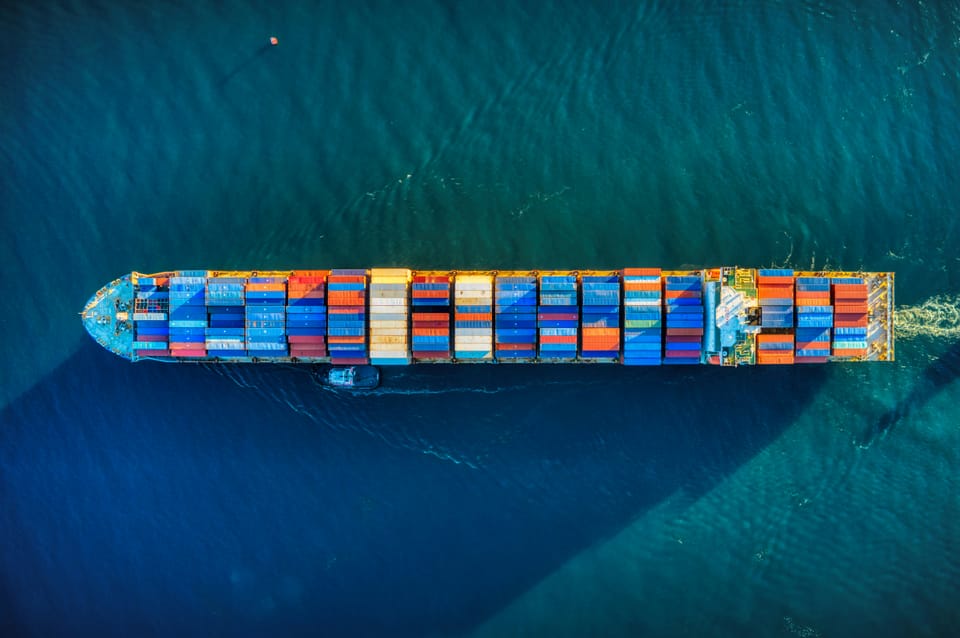Countries agree on global shipping emissions tax – without the US

Countries have agreed on decarbonisation targets and a carbon tax for the shipping industry – with the US noticeably absent from the deal.
The agreement signed today in London at an International Marine Organisation (IMO) meeting is historic, making shipping the first industry to be mandated by international decarbonisation targets. Shipping emissions currently represent about 3% of the global carbon footprint, but are rising rapidly – with experts estimating that the sector could make up as much as 10% of global emissions by 2050.
Under the terms of the deal, shipping companies will have to reduce the emissions intensity of their vessels by 30% by 2035 and 65% by 2040, from a 2028 baseline. Annual targets up to 2035 have also been agreed by IMO members, with the next set (for 2035 to 2040) due to be decided in 2032.
World’s first global carbon tax
If these companies don’t meet the reduction goals, they will be fined at a price of US$100 to US$380 per tonne of emissions beyond the target threshold from 2028, depending on the type of fuel used.
The money gathered through these fines – effectively the world’s first global carbon tax – will feed into a new Net Zero Fund to support the development of net zero technologies for the shipping sector.
But countries present in the negotiations fell short of imposing a flat carbon tax on all shipping emissions – a proposal that was backed by Pacific Island nations but heavily opposed by the US, which walked out of the negotiations in protest yesterday.
According to Transport & Environment (T&E), “the current package will exempt nearly 90% of excess shipping emissions from carbon penalties” and generate around US$10 billion per year until 2035 in revenues for the Net Zero Fund.
Reactions to the deal
Faig Abbasov, shipping director at T&E, said: "Multilateralism isn't dead. Despite a tumultuous geopolitical environment, the IMO deal creates a momentum for alternative marine fuels. But unfortunately it is the forest-destroying first generation biofuels that will get the biggest push for the next decade. Without better incentives for sustainable e-fuels from green hydrogen, it is impossible to decarbonise this heavy polluting industry. The ball is now in the court of individual countries to implement national policies to open a life-line to green e-fuels".
Meanwhile, the International Chamber of Shipping (ICS) “cautiously welcomed” the agreement. Guy Platten, Secretary General, said: “Today will hopefully be remembered as a historic moment for our industry. If formally adopted, shipping will be the first sector to have a globally agreed carbon price, something which ICS has been advocating for since COP 26 in 2021, when the industry agreed a net zero 2050 target.
“Shipping is now at the forefront of efforts to decarbonise rapidly to address the climate crisis. The world’s governments have now come forward with a comprehensive agreement which, although not perfect in every respect, we very much hope will be formally adopted later this year.”







Member discussion